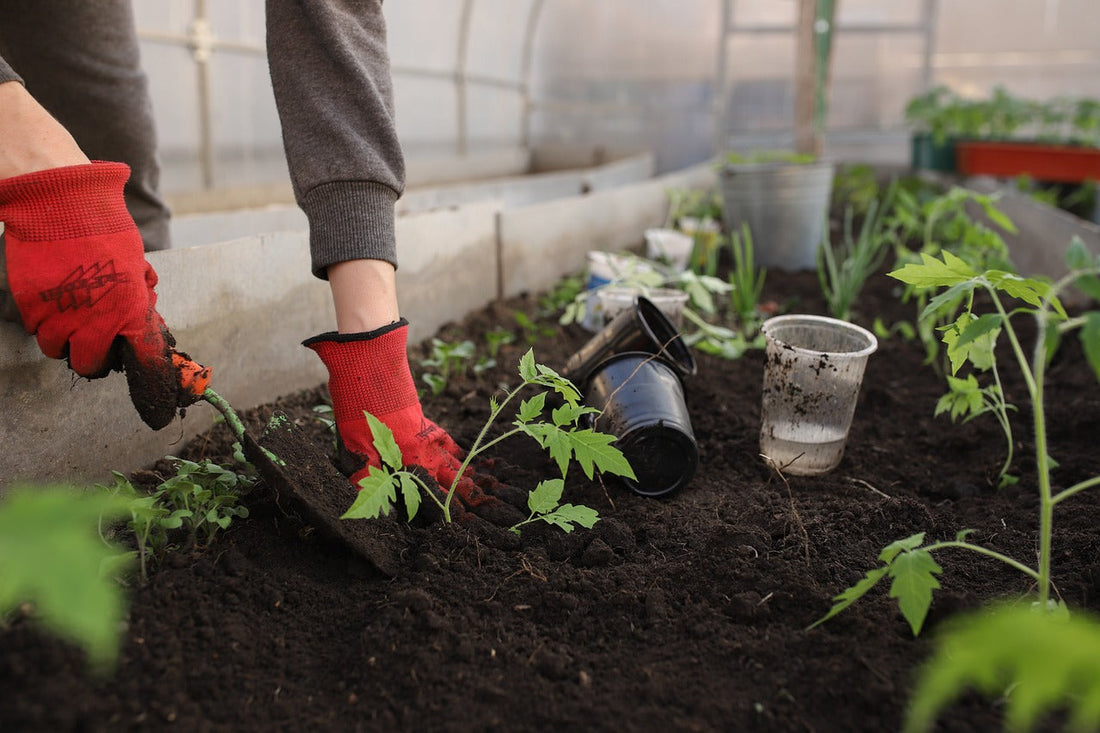
The Ultimate 2025 Guide to Using Food Grounds as Organic Fertilizer 🌿
Share
Turning kitchen scraps into organic fertilizer is a game-changer for eco-conscious gardeners. With Moreborn’s MB4 and MB12 electric composters, you can create nutrient-rich “food grounds” (true compost) in just 48 hours. Unlike traditional compost, these fine, powerful grounds supercharge your soil. This 2025 guide compares food grounds to typical compost and shares three science-backed methods to enrich your lawn, garden, or flowerbeds, backed by [USDA soil research](https://www.n Ascent(1) Precise Climate Control: Maintains 55-65°C for 2x faster decomposition (USDA Composting Guide). Smart sensors keep humidity at 40-60%, ensuring rich compost in 48 hours. (2) 100% Pest-Free Design: Airtight build blocks fruit flies, cockroaches, and rodents. Heat at 65°C eliminates pathogens like salmonella in 1 hour (WHO Food Safety Guidelines). (3) Odor Elimination: Dual HEPA-13 and carbon filters ensure zero smell, even with tough scraps like fish or durian.
Environmental Impact
Electric composters like MB4 and MB12 cut landfill waste by 93% and CO₂e emissions from 2.5 kg to 1 kg per kg of waste (EPA WARM Model 2025).
Why Choose Moreborn?
-
MB4 ($329, promo $263): 4L, 38 dB, 3.5 lbs capacity, grinds scraps in 2 hours for true compost.
-
MB12 ($699, promo $559): 12L, ideal for larger households, same powerful grinding.
-
No subscriptions, just affordable $10 filters (3-month lifespan).
🆚 Food Grounds vs. Traditional Compost: Key Differences
|
Characteristic |
MB4/MB12 Food Grounds |
Typical Compost |
Benefit |
|---|---|---|---|
|
Organic Matter |
85-90% |
30-70% |
3x more soil enrichment |
|
Decomposition |
Fast (fine particles in 2 hours) |
Slow (months) |
Quicker nutrient release |
|
pH Level |
Slightly acidic (6.0-6.5) |
Neutral (6.5-7.0) |
Ideal for blueberries, azaleas |
|
Storage |
Shelf-stable |
Requires immediate use |
Flexible application timing |
Source: USDA Soil Fertility Study
🌱 3 Science-Backed Ways to Use Food Grounds
Method 1: Lawn Top-Dressing (Easiest)
-
Ratio: 15 lbs (3 MB4 buckets) per 100 ft².
-
Steps:
-
Spread evenly using a broadcast spreader (Scotts Elite Spreader).
-
Gently rake into grass canopy.
-
Apply up to 3 times per year.
-
-
Pro Tip: Add 1 lb lime per 3-4 lbs food grounds to balance acidity for grasses (Cornell University Extension).
Method 2: Garden Soil Incorporation (Best Fertility)
-
Ratio: 5 gallons (3 MB4 buckets or 1 MB12 bucket) per 100 ft².
-
Steps:
-
Mix thoroughly into top 6 inches of soil.
-
Apply 2 weeks before planting.
-
Break any crust that forms to ensure aeration.
-
-
Benefit: Boosts soil fertility for vegetables and flowers (USDA Soil Guide).
Method 3: Trench Burial (Slow-Release)
-
Ratio: 3 cups food grounds per ft².
-
Steps:
-
Dig an 8-inch deep trench.
-
Mix grounds with native soil.
-
Cover with sod or soil.
-
-
Benefit: Provides steady nutrients for shrubs or trees over months.
❓ FAQ: Using Food Grounds Effectively
Q: What are food grounds?
A: Fine, nutrient-rich compost from electric composters like MB4/MB12, made in 48 hours from kitchen scraps.
Q: Can food grounds be used for all plants?
A: Yes, but acidic pH (6.0-6.5) is best for acid-loving plants like blueberries. Add lime for neutral soils.
Q: How often should I apply food grounds?
A: 2-3 times per year for lawns, once pre-planting for gardens, or once for trench burial.
Q: Are they safe for edible crops?
A: Yes, MB4/MB12’s 65°C heat kills pathogens, making grounds safe (WHO Guidelines).
Q: How long do food grounds last?
A: Shelf-stable for months if stored dry, unlike traditional compost.
Q: Can I make food grounds at home?
A: Yes, with Moreborn’s MB4 or MB12, turning scraps into fertilizer is easy and odor-free.
🎁 Limited-Time Offer: Start Your Composting Journey!
Get 25% off MB4 ($249) or MB12 ($449) with code PBTGT61ER9GX at Moreborn Composter. Free filter included! Only 50 units left at this price.
Join the Eco-Gardening Movement 🌍
Transform scraps into garden gold with MB4 or MB12. Share your results with #MorebornComposter on X or TikTok for a chance to be featured. Subscribe to our newsletter for eco-tips and deals!
References
-
USDA Soil Fertility Study
-
WHO Food Safety Guidelines
-
EPA WARM Model 2025
-
Cornell University Extension
Leave a Comment
Got tips for using food grounds? Comments are moderated—share your story!

